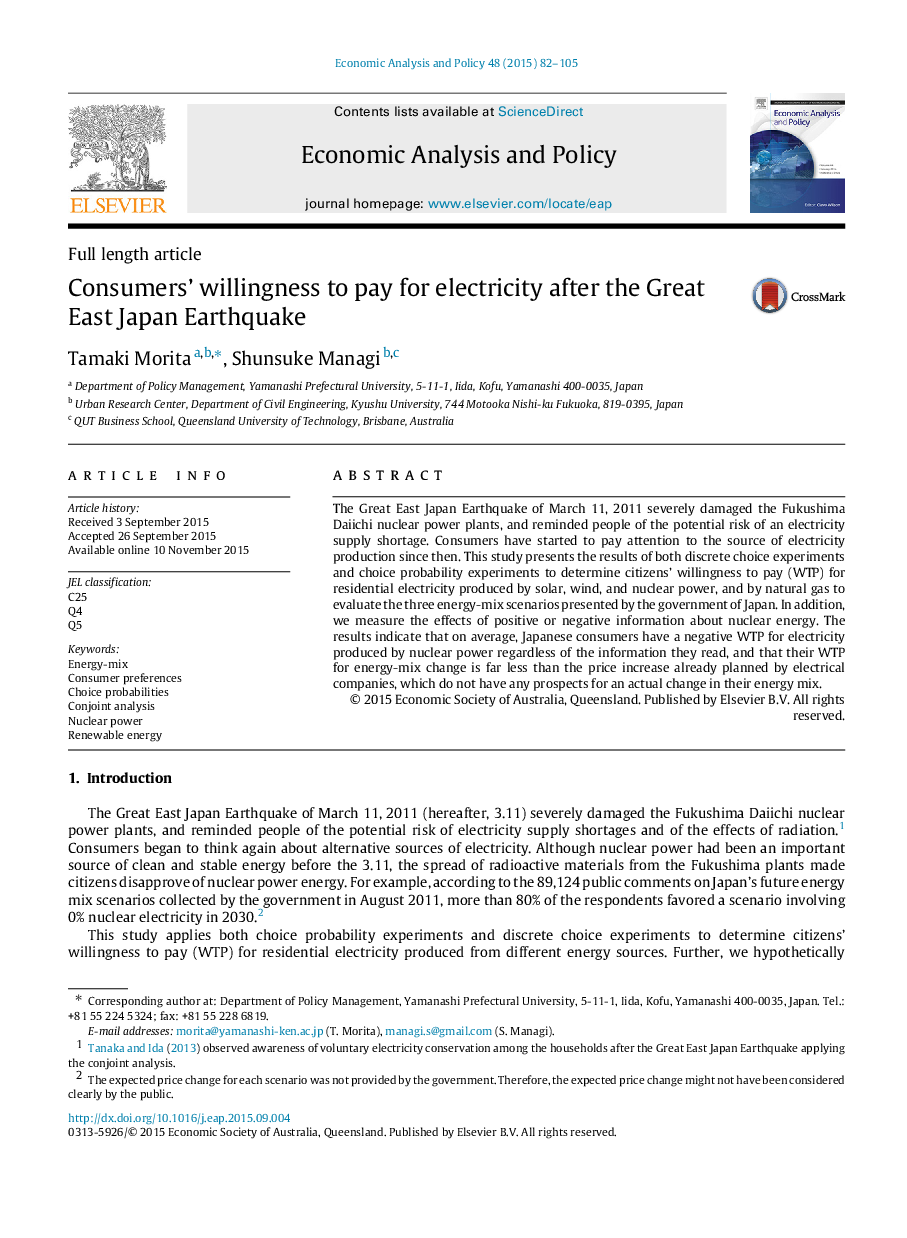| Article ID | Journal | Published Year | Pages | File Type |
|---|---|---|---|---|
| 5052744 | Economic Analysis and Policy | 2015 | 24 Pages |
The Great East Japan Earthquake of March 11, 2011 severely damaged the Fukushima Daiichi nuclear power plants, and reminded people of the potential risk of an electricity supply shortage. Consumers have started to pay attention to the source of electricity production since then. This study presents the results of both discrete choice experiments and choice probability experiments to determine citizens' willingness to pay (WTP) for residential electricity produced by solar, wind, and nuclear power, and by natural gas to evaluate the three energy-mix scenarios presented by the government of Japan. In addition, we measure the effects of positive or negative information about nuclear energy. The results indicate that on average, Japanese consumers have a negative WTP for electricity produced by nuclear power regardless of the information they read, and that their WTP for energy-mix change is far less than the price increase already planned by electrical companies, which do not have any prospects for an actual change in their energy mix.
